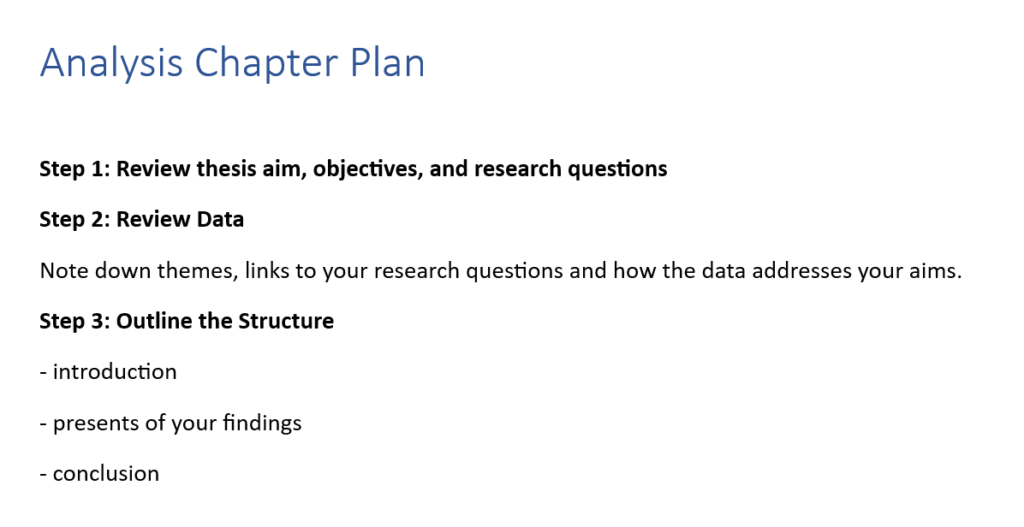PhD Dissertation Analysis Writing
The analysis chapter is one of the most important features of your doctorate thesis. Your PhD dissertation analysis chapter allows for advancing your scholarly knowledge by interpreting empirical evidence.
It is imperative to present and analyse data and information in an informative yet simple manner so that the reader could easily understand and comprehend the analysis findings. However, the analysis chapter is considered the most challenging part of a PhD dissertation because of the complexity of its structure. It also requires sophisticated and advanced methods of analysis.
Original PhD have prepared a set of practical guidelines that can help you successfully write a PhD dissertation analysis chapter.
Plan your analysis chapter before writing it
Writing without a plan is counterproductive as you may write hundreds or even thousands of excess words. So, it is a good idea to always plan your PhD dissertation chapters in general and the analysis chapter in particular.
Revisit your PhD thesis aim, objectives, and questions and review the collected data. Afterward, plan a skeleton outline, giving close attention to the structure of your analysis chapter. Remember that, as a general rule, your PhD analysis chapter should contain at least three sections or core elements, namely an introduction, a middle section that presents your analytical argument, and a conclusion.

Use appropriate analysis tools
It is important to ensure that your methods of analysis are appropriate for the type of data you obtained. You also need to consider the main aim and objectives of your PhD thesis.
You must justify your choices and convince the reader that you did not select them randomly or haphazardly. Although these details belong to the methodology chapter, they clearly demonstrate that you should think of your methods of analysis at the early stages of the PhD dissertation writing process.
Qualitative and quantitative work
To analyse your data and achieve your research aim and objectives, you can use either qualitative or quantitative analysis methods.
Quantitative data is typical of technical, scientific, and sociological disciplines. Quantitative research designs allow for drawing generalisable conclusions to a wider population.
In turn, qualitative research can be used if you are attempting to uncover some deep, transferable knowledge and generate highly novel empirical findings. While these approaches are aimed at different things, writing a doctoral thesis usually involves both qualitative and quantitative analysis methods and instruments.
If you're unsure of what methods of analysis you should be using, you can consult our PhD writing team for advice. Original PhD's team has years of experience analysing primary data and they can help make your PhD dissertation successful.
Dissertation Analysis Writing
The presentation is an important aspect of a high-quality PhD dissertation analysis chapter. While PhD students may face certain challenges in representing large volumes of data, the use of graphs, charts, diagrams, and tables can help them present data in a succinct manner.
Remember that you should always keep your reader in mind when writing your PhD analysis chapter. Make sure to assess the clarity of your data and findings from the perspective of those who may not be familiar with your PhD research.
Discuss your findings
Presenting your findings in an easy-to-understand and succinct manner isn't merely enough to prepare a good PhD dissertation analysis chapter. You also need to show a capacity to identify patterns, trends, and themes within your dataset. Discuss your findings from different theoretical perspectives and balance their pros and cons.
These guidelines can help you in structuring and writing your PhD dissertation analysis chapter and making it balanced and easy to read. However, if you are in need of assistance from professional writers, we can help you. Our team of PhD writers will gladly assist you with this task. As professional academics in a vast range of subjects, they enable us to guarantee that our services are of exceptionally high quality as they know exactly what our clients want. Get in touch today to see how we can help you.

